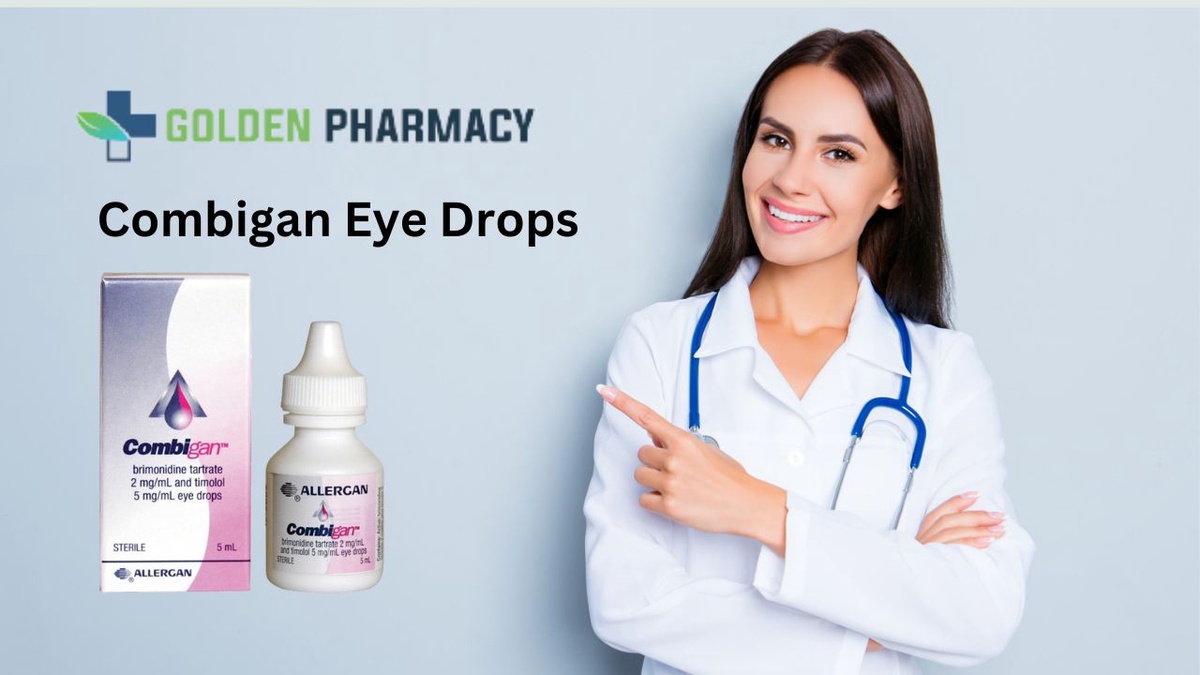Combigan eye drops are a prescription medication commonly used to treat glaucoma and ocular hypertension. This medication is a combination of two active ingredients, brimonidine tartrate and timolol maleate, which work together to lower intraocular pressure by reducing the production of aqueous humor in the eye.
What Are Allergic Reactions?
Allergic reactions occur when the body's immune system overreacts to a substance that is usually harmless. When exposed to an allergen, the immune system produces antibodies that trigger the release of chemicals such as histamine, leading to various symptoms ranging from mild to severe.
Understanding Allergic Reactions to Combigan
While Combigan eye drops are generally well-tolerated, some individuals may experience allergic reactions to one or both of its active ingredients.
Common Allergic Reactions
Common allergic reactions to Combigan may include:
- Itching or redness of the eyes
- Swelling of the eyelids
- Watery eyes
- Mild eye discomfort or irritation
Severe Allergic Reactions
In rare cases, severe allergic reactions to Combigan may occur, leading to:
- Difficulty breathing
- Swelling of the face, lips, or tongue
- Severe eye pain or discomfort
- Blurred vision or vision changes
Symptoms of Allergic Reactions
Mild Symptoms
Mild allergic reactions to Combigan eye drops may manifest as itching, redness, or mild discomfort in the eyes. These symptoms are usually transient and may subside on their own without intervention.
Severe Symptoms
Severe allergic reactions to Combigan require immediate medical attention and may present as difficulty breathing, swelling of the face or throat, or severe eye pain. These symptoms can be life-threatening and should not be ignored.
Risk Factors for Allergic Reactions
Certain factors may increase the risk of experiencing allergic reactions to Combigan, including a history of allergies or sensitivities to similar medications, such as beta-blockers or alpha agonists.
Prevention of Allergic Reactions
Consultation with a Healthcare Professional
Before using Combigan eye drops, it is essential to consult with a healthcare professional, particularly if you have a history of allergies or sensitivities to medications.
Proper Administration Techniques
Proper administration techniques can help minimize the risk of allergic reactions. Ensure that hands are clean before applying the eye drops and follow the instructions provided by your healthcare provider carefully.
Treatment for Allergic Reactions
If allergic reactions to Combigan occur, several treatment options may help alleviate symptoms and manage discomfort.
Antihistamine Medications
Antihistamine medications can help reduce itching and inflammation associated with allergic reactions. These medications are available in various forms, including oral tablets and eye drops.
Corticosteroid Eye Drops
Corticosteroid eye drops may be prescribed to reduce inflammation and swelling in cases of severe allergic reactions. These medications should be used under the guidance of a healthcare professional due to potential side effects.
Managing Allergic Reactions Effectively
Identifying Triggers
Identifying triggers for allergic reactions can help prevent future occurrences. Keep a record of any substances or environmental factors that seem to exacerbate symptoms and take steps to avoid them.
Avoidance Strategies
Avoidance strategies, such as wearing protective eyewear in windy or dusty environments, can help minimize exposure to potential allergens and reduce the risk of allergic reactions.
Combigan and Other Medications
Inform your healthcare provider about any other medications you are taking, including over-the-counter drugs and supplements, as they may interact with Combigan and increase the risk of adverse reactions.
Conclusion
While Combigan eye drops are an effective treatment for glaucoma and ocular hypertension, it is essential to be aware of the potential for allergic reactions. By understanding the symptoms, risk factors, and prevention strategies associated with allergic reactions to Combigan, individuals can use this medication safely and effectively under the guidance of a healthcare professional.
FAQs
- Can anyone use Combigan eye drops?
- Combigan eye drops are prescription medications and should only be used under the supervision of a healthcare professional. Not everyone is a suitable candidate for this medication.
- How quickly should I seek medical attention if I experience an allergic reaction to Combigan?
- It is crucial to seek medical attention immediately if you experience symptoms of a severe allergic reaction, such as difficulty breathing or swelling of the face or throat.
- Are there any alternative medications for individuals who are allergic to Combigan?
- Yes, there are alternative medications available for the treatment of glaucoma and ocular hypertension. Your healthcare provider can recommend alternative options based on your individual needs and medical history.
- Can allergic reactions to Combigan be prevented?
- While it may not be possible to prevent all allergic reactions, certain precautions, such as proper administration techniques and avoidance strategies, can help minimize the risk.
- Are allergic reactions to Combigan common?
- Allergic reactions to Combigan are relatively rare but can occur in some individuals, particularly those with a history of allergies or sensitivities to similar medications.


No comments yet